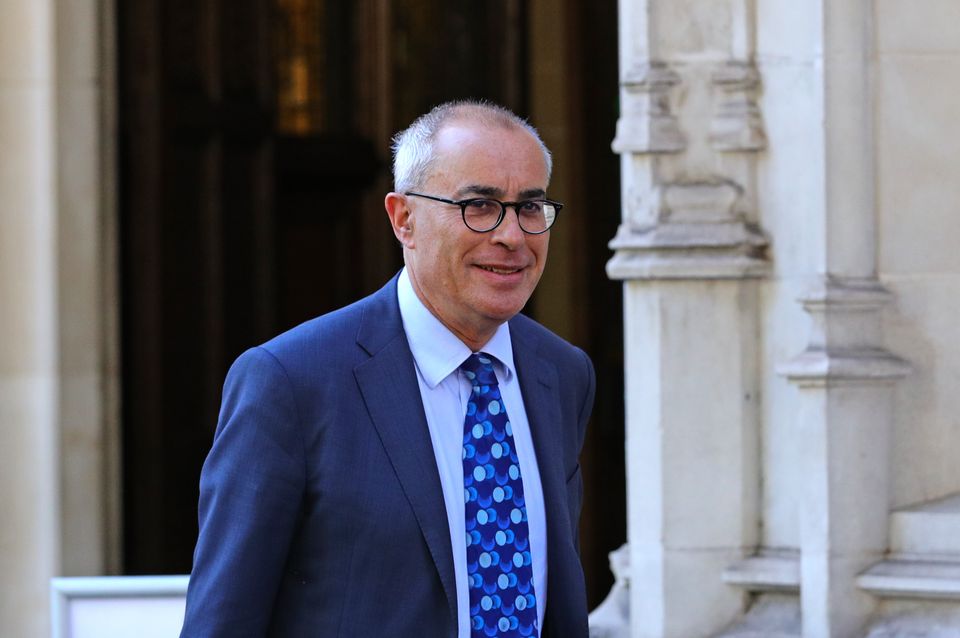Peers have inflicted two heavy defeats on the Government over elements of a new offence of creating sexually explicit deepfake images or the filming of someone without their consent.
Ministers brought forward an amendment to the Data (Use and Access) Bill after campaigning from Conservative peer Baroness Owen of Alderley Edge.
However, Lady Owen brought forward further amendments backed by her front bench to strengthen the new law, which she argued does not go far enough.
The House of Lords voted by 302 to 132, majority 170, in favour of increasing the maximum sentence for this crime from an unlimited fine to imprisonment.
Peers also supported by 318 votes to 130, majority 188, an amendment that would remove the ‘reasonable excuse’ defence.
On the issue of the maximum sentence, Lady Owen said: “It is vital that the Government takes a strong position in standing up to those who abuse women in this appalling way.
“I’m sure you will agree that there is no expectation that every perpetrator will end up in prison, but it is vital that the option is open to judges so that, in the most extreme of cases, there is a deterrent to show how seriously, as a society, we take this form of digital violence against women.
“Campaigners agreed, saying that if you don’t have prison, abusers will think they’re untouchable.”
The 31-year-old added: “I’m sure, like many young women, I’m struggling to comprehend a legal system that offers a heavier punishment for fly-tipping than the violation of my consent.
“How many more women must suffer before we finally treat VAWG (violence against women and girls) offences on par with other crimes?”
She concluded: “For too long, women have had their pain diminished and their experiences belittled.
“We are at the precipice of a new age of extreme misogyny and I urge you to please strengthen the hands of the judges to tackle this abuse.”
Peers across the House agreed that, in severe cases, imprisonment is an appropriate sentence – for example, where images have been created “on an industrial scale with hundreds of victims”.
Justice minister Lord Ponsonby of Shulbrede responded: “We are confident that the maximum penalty of an unlimited fine is appropriate for a new offence such as this.”
He added that the offence of creating intimate images without consent is “very, very likely” to be prosecuted alongside offences of sharing or threatening to share intimate images, which carries a maximum penalty of two years’ imprisonment.
However, Lady Owen argued that there are situations where deepfakes are created and not shared, but still “present a very real threat” to the victim.
On the issue of the ‘reasonable excuse’ defence, Lady Owen said she had concerns that it “may allow abusers to escape justice, leaving victims traumatised”.
Lord Pannick KC (Aaron Chown/ PA credit)
Leading lawyer Lord Pannick KC argued: “I can see no circumstances in which there could be a reasonable excuse for the defendant’s conduct…
“For the legislation to include a ‘reasonable excuse’ defence is wrong in principle, because Parliament would be saying that such conduct could be excusable – and its not excusable.
“To include such a defence would also be unfortunate in practice, because the inevitable consequence will be that defendants will take up the court’s time presenting spurious excuses such as – and this is what happens – ‘I was only having a laugh’ or the victim ‘lacks a sense of humour’, and that type of defence will add to the distress of the victims.
“A ‘reasonable excuse’ provision defence, I say, has no place in this offence.”
Human rights lawyer Baroness Kennedy of the Shaws agreed that there is “no reasonable excuse that could be imagined that would justify it” and that its inclusion would allow “all manner of nonsense” to be presented to the courts.
Responding, Lord Ponsonby said that the ‘reasonable excuse’ defence is “very common in courts up and down the land”, including for other intimate image offences, and that it is for magistrates and judges to decide on the merit of the argument.
The minister added that we “simply cannot know all the circumstances now and in the future, as the technology develops” that might present a reasonable excuse.
He concluded: “It is the Government’s view that this defence is necessary to ensure the deepfake offense is a proportionate response to the threats posed by intimate image deepfakes.”
Meanwhile, the Government made a key concession, accepting a further amendment from Lady Owen that makes it an offence to solicit the creation of sexually explicit images of someone without their consent.
Campaigners have argued that this is important because its absence would create a loophole where UK-based individuals could ask people overseas to create such images for them.
Lord Ponsonby said the Government would amend the Bill after hearing the “strength of feeling” in the upper chamber.
